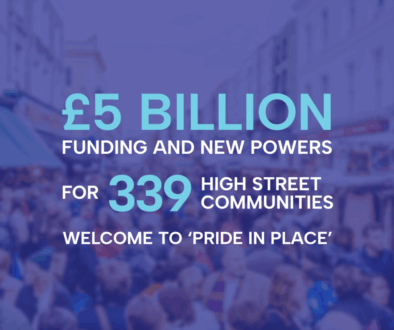Retailer Advisory Board Meeting 1 #DATA
[Tuesday, May 23rd 2017]
Location: SaveTheHighStreet.org London Headquarters
By: Lyndsay King, SaveTheHighStreet.org Founding Partner and Community Organiser
The first Retailer Advisory Board meeting was hosted at the SaveTheHighStreet.org Headquarters on Tuesday morning, 23rd May from 09.30-10.30. To host the meeting we welcomed Andy Logan, CEO and co-founder of VapeEmporium, Simon England, founder and owner of The London Cycle Workshop, both independent retailers. A total of 25 retailers joined in person and over the phone nationwide.
The Retailer Advisory Board was formed to give retailers an open platform to discuss ‘what works’ and the current challenges in independent retail today. This meeting was focused around the topic of data. Through these meetings the Retailer Advisory Board provides independent retailers with recommendations around how they can use data to drive their business forward, by the retailer, for the retailer.
We were joined by two guest speakers [Industry Leaders], Harriet Lawman, Head of New Business from JCDecaux, and Colin Price, Marketing Manager from Lightspeed, a cloud based EPOS company. Harriet discusses data driven advertising and explains the new opportunities for local independents with the advent of outdoor geo-targeted ads like never before. Colin talks about how businesses can overcome their challenges around the daunting task of implementing an electric point of sale and start to save time, money and grow the business.
The meeting opened with Alex Schlagman, Founding Partner of SaveTheHighStreet.org, and author of The Connected Digital High Street Manifesto (2016) speaking about data recommendations as business drivers across the 10 pillars and what this means to local independent shops.
________________________________________________________________________________
The Retailer Advisory Board host of the meeting Andy Logan
Provided us with an overview of his business, a three and a half year-old brand, VapeEmporium started out of his bedroom with a basic website. He attributes a positive part of his shop’s growth and success to data capture and breaks it down into three areas for Retailer Advisory Board members:
- An electronic point of sale system that manages 3,148 SKUs in Andy’s business. This joins all shops and warehouses into one place allowing Andy to oversee his business at all times. He can pull sales reports, and predict what’s selling and when products are expected to sell out, so he always knows when to order a product. Reporting allows him to look at trends and top sales days, months of the year and even seasons to make informed business decisions.
- Loyalty allows Andy to keep track of customers that come through the door and their buying habits, which allows him to market to customers in a non-aggressive way, but rather to make suggestions about what customers actually want.
- A staff rotor system and software, helps Andy manage his staff and the various skill sets required. For example if a staff member cancels a shift, he can electronically send out a request to all of his retail consultants and let them bid for the shift, it’s a first come first serve basis, and a process that has made staff management so much easier. All staff hours are recorded into the system and can be exported and calculated in minutes at the end of the day, week or month. This way payroll has become a lot more efficient and less of a headache, its also saves him loads of time.
________________________________________________________________________________
How does JCDecaux use data to work with independent retailers?
Harriet Lawman explains, “JCDecaux are working across two main data streams focusing on locational data and behavioural data. These two streams of data provide insights about where customers are located and how consumers behave.” For example shops can target ads on bus shelters outside the store, perhaps a morning advertisement could offer a free coffee or newspaper with purchase welcoming customers. This is relevant, and offers something customers want, this is what data intelligence can do. You would advertise something completely different on Friday nights and weekends. Once you understand your audience you can then determine how to reach them to grow your business.
JCDecaux provide individual reps across the county who are available to work directly with independent retailers and the SaveTheHighStreet.org network. They can advise on the best most cost effective ways for an independent to advertise using geo-targeted digital boards. JCDecaux will also manage the advert process from A-Z including design and copy support.
________________________________________________________________________________
How does Lightspeed help independent retailers use data to save time, and make better decisions in business?
Colin Price from Lightspeed pointed out “I don’t know any retailer that got into business because they love spreadsheets. They got into the business because they love their product and their customers.” Lightspeed is an electric point of sales and ecommerce platform, commonly known as EPOS. It’s an inventory management tool that supports independent retailers in organising stock and sales in store and online, and even in the warehouse. With EPOS shops are able to use the data they collect to make decisions based on sales data. With in weeks of a shop getting up and running with EPOS they immediately see the time saved and start to see the financial benefits. This can even help a business know exactly how to budget when opening a new shop.
__________________________________________________________________________________
How much data do you need to use the data in your business. Do you need large amounts to get accuracy?
“The more data the better the trends you can identify and analyse. Initial data for example, two sales is still a good starting point. Less data for a small shop is not a barrier, but a good starting place. So don’t be afraid if you don’t have enough data, just get involved and get started. Let it grow from there.” says Andy Logan, VapeEmporium
How can data can save time considering that much time is invested to get these systems up and running?
“Choose the suppliers who offer support on integrations and getting you set up. Within weeks of getting set up time was being saved is big slices.” [Andy Logan]
Simon England, owner of The London Cycle Workshop, a small bicycle repair shop with two locations. He says that since adopting a cloud based EPOS system he was able to save, time, money and grow the business doing more of what he loves. 18 months ago Simon implemented an electronic point of sale [EPOS] now uses data to make smart decisions in his shop. In the first two weeks the team imported more than 6,000 items into the system.
They have created their own way to enter product info so it’s easy to search. “Running a business and being able to keep it all together from a distance is fantastic for a business owner. There are lots of time saving opportunities. Realising what we were like before with notebooks and post-it notes, we now look back and feeling like those were the dark ages. Being able to mobilise your business form afar was a huge plus, I can check sales and what’s going on from the touch of my phone.”
The task of getting all the stock in the system can be daunting, but start with the first thing. Accept it will absorb time to get started. Get the team in and do it together. He ordered pizza and made a game out of it together with the team to get it done. “The pay off will be worth it. From the very beginning it took about two weeks to get it all up and running and it was so good and so organized the benefit were immediate and striking. Instead of waiting for the slow season, they implemented the EPOS into the second shop immediately. How many evenings of pizza is it worth?” says Simon.
What is the roll of EPOS companies going forward?
Data is the single greatest asset a business can leverage, and in an incredibly competitive retail market it’s vital for SMBs to make informed decisions. Naturally then, I was delighted to hear such great examples from the Retailer Advisory Board of businesses that are driven by data.
An EPOS system gives you a level of visibility and access to information that just isn’t possible with more traditional means. Andy and Simon certainly didn’t get into retail because they wanted to spend their evenings going through spreadsheets and order books. Instead they rely on systems that automate the number-crunching and reporting for them. They get all those hours back to spend with their customers and the things they are passionate about.
Better yet, because their EPOS system gives them an overview of how their business is doing, they can make better decisions. Whether checking what stock they need to re-order, where they can increase their profits or how their teams are performing, they can access this information and take action instantly.
Investing in retail EPOS may seem daunting, but the costs are swiftly outweighed by the efficiencies gained and the time saved. At Lightspeed we also help our clients to upload their stock inventories and organise their systems in order to get off to a flying start!
If you’d like to find out more about how an EPOS system can save you time and make more informed decisions, then we’d love to help. SaveTheHighStreet.org members can benefit from an exclusive offer too. You can get in touch with Lightspeed.
Having data is great, and a system to collect data is great too, but if you aren’t using the insights you aren’t getting the value. How important was data in making the transition from a single store to a multi shop or going online – these are the questions independents need to be asking.
“The data bit really helped with inventory and selling, but the biggest one is sharing between staff, it wasn’t all in my head any more and all the staff could see what was happening. If a customer phones they can just look and get back to the customer. We have fewer discussions about stock and enquiries, and more doing and servicing. There are different ways to scale. I can check at home and make sure my purchase orders are lined up before the day starts, and can focus on the customer during the day when I’m in the shop.” says Simon England, The London Cycle Workshop.
“Without knowing how much stock I need in each store, I wouldn’t know how much money is needed to start up a new shop.” adds Andy Logan, VapeEmporium. With a rich source of data about the business a shop owner could scale his business from one store to many and mitigate the risks to himself and his investors.
EPOS, CRM and Email Newsletters
“I opened up with an EPOS for stock control and its turned into a CRM where we can manage a customer and their journey from the start, over the years and we can see what they have purchased, how they have changed and predict what they will want and when they will want it.” says Bhavin Shah, owner of Central Vision Opticians
“We will send a newsletter when there is news or when something is happening. We are actively looking for someone who can manage newsletter on a regular basis. Its even as simple as knowing their birthday, you can send them an offer and say 15% off for your birthday. These are simple data driven communications directly relevant to customers.”
Join us for the next Retailer Advisory Board Meeting on Monday, June 5th at 18.30. Contact Matt@savethehighstreet.org for more details.
Please watch our latest video recommendations and subscribe to our YouTube Channel to be the first to receive updates.
Using Data to build and grow my business
Using Data to make effective business decisions
Using Data to advertise better
How email marketing drives Loyalty
Retailer Talks – Retail Technology
Download the PDF here.



